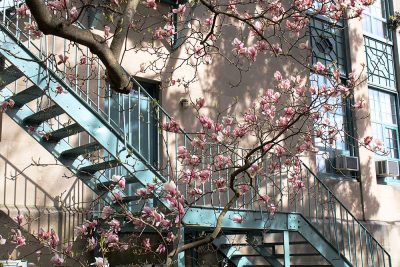By Jeanna Cooper and Claire Law
It’s Earth Day, which means it’s time for the Boston and the Boston University community to come together and celebrate in support of environmental protection.

Following BU Sustainability’s Earth Day festival, here’s how you can get involved to help better our planet this weekend.
Tree plantings, Boston cleanups
Throughout Boston, communities are coming together for clean ups and to plant more trees to make more green spaces for families to enjoy.
GreenRoots Chelsea is hosting a tree planting event Friday and a clean up Saturday. Iliana Panameño, spokesperson for GreenRoots Chelsea, said the organization’s mission is achieving environmental justice for communities who face the burden of climate change and environmental racism, particularly Chelsea.
“Folks that live in Chelsea, East Boston that are majority working class, immigrant folks and folks of color,” Panameño said. “We bear a lot of the brunt of climate change and contamination and fossil fuels.”
Chelsea is a very industrial area, which residents are affected by, she said.
“There’s many factories here, there’s many terminals and trucks going day in and day out,” Panameño said. “Many folks have asthma or some sort of respiratory issue because of that.”
This weekend, roughly 30 volunteers have signed up with Tree Eastie, an urban forestry program, to dig 30 holes in empty tree wells on the sidewalks in various parts of East Boston, founder Bill Masterson said.
Next Tuesday, they will then plant trees in the various holes they’ve dug.
The mission of Tree Eastie is to increase East Boston’s tree canopy coverage — the area shaded by trees — which is 7%, as opposed to the city of Boston’s 27%, Masterson said.
“There are some streets in East Boston that don’t have one single tree on them,” Masterson said. “It’s like a tree desert here.”
Last year, Tree Eastie launched an “adopt a tree” program, where people can sign up to water a tree in front of their house, Masterson said.
“The more people that sign up to water trees, the better it’s going to be for the trees’ chances of survival,” Masterson said. “[Street trees] need 15 to 20 gallons of water a week to survive during the first three years, but a lot of times … there isn’t enough rainfall to be able to sustain them.”
Masterson said those looking to volunteer with Tree Eastie should contact [email protected].
Seedling bagging, Arbor Week events
Speak for the Trees, Boston, a forestry nonprofit aiming to “improve the size, health and equity of Boston’s tree canopy,” is hosting a seedling bagging at Seaport Common from 10 a.m. to 2 p.m. Friday.
“We’re getting 1,400 seedlings … separate them out with each seedling in a different bag,” David Meshoulam, co-founder and executive director of Speak for the Trees, Boston, said. “Then those seedlings get put in boxes and distributed to our community partners around the city.”
The seedling bagging Friday is a part of a series of events Speak for the Trees, Boston is hosting for Arbor Week — a celebration of trees.
Earth Day marches, demonstrations
Massachusetts Peace Action, a nonprofit organization for a more just and peaceful United States foreign policy, is hosting a rally and march Friday at Park Street Station calling for people, planet and peace over profit. Starting at 1 p.m., there will be speakers and music.
Demonstrators can then march to Copley Square by 3:30 p.m., where Extinction Rebellion, an international, non-violent movement focused on environmental issues, is starting its Freedom from Fossil Fuels tour. There will be marching, art, dancing and “disco-bedience,” according to a flier.
Charles River Watershed Association
People can also volunteer to participate in 24 clean-ups near the Charles River Friday and Saturday, hosted by the Charles River Watershed Association.
Executive Director Emily Norton said that participating in clean-ups can help people feel like they are doing something to better the environment.
“There’s a sense of futility, the challenge is so big,” Norton said. “This is something very specific that people can do.”
The organization started in 1965 because people were “disgusted by the state of the Charles River,” she said.
“Ideally we would not be throwing the garbage on the land or the river in the first place,” Norton said. “But until we do a better job at stopping the source at least we can be cleaning it up.”

















































































































